Traffic problem, no problem!
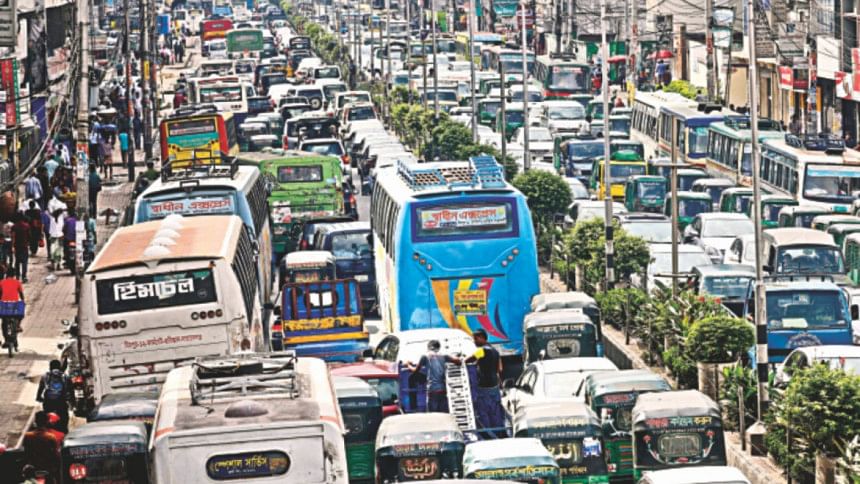
My wife's car has artificial intelligence, which I realised while returning from the BRTA office after renewing its fitness certificate, the annual ritual for every motor vehicle in Bangladesh.
Thanks to an agent, we went there at 8am and were finished by 2pm. I felt relieved because it was two weeks overdue. What happened next could be any Hollywood sci-fi movie sequence. As we hit the expressway, the engine growled, and the car pounced, weaving through the traffic, frequently changing lanes to overtake them. "Rubel, why are you driving so fast? Slow down, for God's sake!" I yelled at my driver. He looked puzzled, glanced at the speedometer nervously while trying to manage the steering wheel, and mumbled, "It's speeding up all by itself. I haven't done anything!" Baffled, I frantically tried to comprehend our bizarre situation. After a few minutes of racking my brain, it occurred to me like an epiphany: the newly obtained fitness document! The car, looking quite innocent and rather dumb, sensed its presence, felt "fit as a fiddle," and sprinted at the first opportunity. Somehow, we managed to steer it home safely.
Rubel stepped out, staggered towards a water tap, and put his head under flowing water in full view of grinning onlookers, both baffled and bemused. I calmed my nerves with a double-shot espresso. We had to confine the culprit in a double-locked garage until its excitement waned.
I revisited the fitness-checking process to satisfy my curiosity. The inspector scanned the barcode on the windshield with a hand-held device, signed a few papers, and was off. That's it! The car got a clean bill of health for another year. Nobody opened the engine hood or checked the emission. Not even a glance at the tyres or the lights. Now I know how the 40-something buses and trucks get their fitness certification and run with more vigour every year. Don't let their rickety and rusted bodies, black exhaust, peeling paint, and absence of lights fool you. They are all certified fit and road-worthy. I feel savvier as I sit inside the air-conditioned car and watch people boarding or getting off running buses in the middle of busy intersections, covering their mouths with Covid-era masks. Who will tell them there is no need for masks because all vehicles are fit, and the emissions are perfectly healthy?
But why are those people crossing the road through such heavy traffic when a perfect foot overbridge is nearby? Some escort uniformed children, hold babies, or carry heavy bags. A grown-up was recently photographed crawling through a narrow hole in a road divider on the ever-busy Aricha Road. Isn't that illegal and dangerous? I kept pondering as the car started moving again. Suddenly, my whole body jerked briefly as if struck by lightning. Rubel looked at me quizzically. The purpose of the foot overbridge was not what I thought! They were for shopkeepers and beggars to set up businesses, people without homes to sleep at night, and perhaps drug peddlers. How mistaken I was!
The train of thought kept going as I stopped at another congestion. Pedestrians don't need footpaths; they can use any part of the road. Footpaths are for hawkers and fish sellers (who will also process it for you right there), motorbike users and, astonishingly, relieving oneself.
Dhaka's roads have many unique aspects that no other city can match. You can drive in any direction—there is no right or wrong. You turn on your hazard lights (or flash headlights), honk, and keep driving in whichever direction and at whatever speed you want. Other drivers will give way with reverence. Learn from the rickshaw drivers. They take the shortest path to the destination, like crossing a farmland diagonally, stopping and greeting people at will along the way. Some roads have signs saying, "It is forbidden to drive in the wrong direction." But how would others know which direction is wrong for me? My direction is always the right one! And who are you to tell me which direction I should travel?
I gradually came to realise that Dhaka has no traffic problems. Shake your head in disagreement all you want, but I will tell you why it is so. Nothing is stuck forever; slowly and grindingly, things move along, though often it takes hours. People get to work every day. Children go to schools. Stay-at-home parents carry on with their daily chores. Late into the night and early mornings, trucks, pickups and rickshaw vans carry fresh produce to the markets. Shoppers complain about the rising prices but still buy things. Days roll into weeks, weeks into months, then into years, and so on for decades, while life gets more arduous. Where is the problem, then? It lies among those who habitually complain about everything from their air-conditioned cars, homes and offices.
May I also propose another unique offering Dhaka could make to the world? A motor rally from Sadarghat to the Gazipur intersection and back in full traffic. It would start at 4pm on a Thursday. The Paris-Dakar rally would look like a toddler's game. Imagine the enormous tourism development opportunity it would bring.
So, dear residents of Dhaka, stop complaining and continue with your daily endurance in this city of ever-increasing traffic congestion. And dear experts and policymakers, find out why rural workers migrate to cities in droves. Decode the economy of people's travel demands and the unending supply of rickshaws. And, finally, step out of your air-conditioned SUVs to use public transport. That's the minimum you could do.
Dr Sayeed Ahmed is a consulting engineer and the CEO of Bayside Analytix, a technology-focused strategy and management consulting organisation.
Views expressed in this article are the author's own.
Follow The Daily Star Opinion on Facebook for the latest opinions, commentaries and analyses by experts and professionals. To contribute your article or letter to The Daily Star Opinion, see our guidelines for submission.
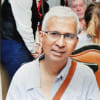
 For all latest news, follow The Daily Star's Google News channel.
For all latest news, follow The Daily Star's Google News channel. 



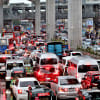
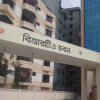

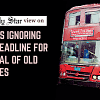



Comments